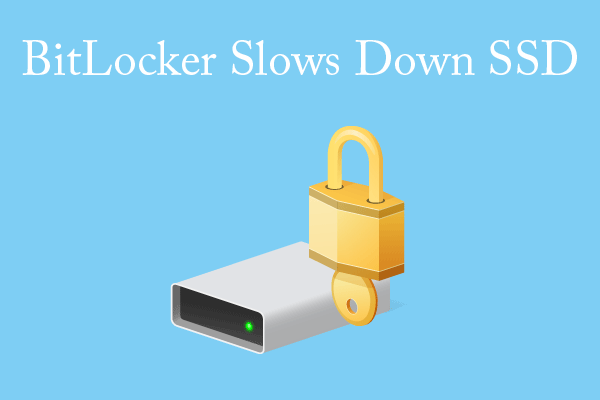What Is Encryption?
Nowadays, we all know the importance of the data protection. To avoid data leakage, it is necessary to encrypt in-flight data as well as data at rest.
The encryption will convert information entered in a digital device into blocks of meaningless-looking data. Then, unauthorized users cannot gain access to the data even they get the device with data stored.
In general, the more sophisticated the encryption process, the more illegible and undecipherable the encrypted data. If you want to change the encrypted data back to its original form, rendering it readable again, decryption is needed.
MiniTool Partition Wizard DemoClick to Download100%Clean & Safe
What Is SSD Hardware Encryption?
To protect data on an SSD, you can perform SSD encryption via software or hardware encryption methods.
Software encryption uses a variety of software programs to encrypt data on a logical volume. It will create a unique key and store this key in computer memory. The key is encrypted with a user passphrase. When a user enters the passphrase, it unlocks the key and gives access to the unencrypted data on the drive.
Software encryption has some disadvantages. For example, if a hacker cracks the code or password, the encrypted data is also likely to be exposed, and the encryption and decryption processes will slow down the computer because they are done by the CPU.
Therefore, many people may prefer self encrypting SSDs, which are SSD with a built-in controller that supports hardware encryption, such as a 256-bit AES encryption controller. The controller can encrypt data before it is written and decrypts it before it is read directly from the NAND media.
In addition, the SSD hardware encryption sits between the OS installed on the drive and the system BIOS. The encryption key is generated and stored on the NAND flash. In a word, the data leakage risk of self encrypting SSDs will be reduced.
Besides, the SSD encryption process is entirely performed by the 256-bit AES encryption controller. Hence, the computer speed won’t be slowed down.
Best Encrypted External Hard Drives
Do you want to buy an encrypted external hard drive? If so, you can consider the following options.
- Crucial X9 Pro
- Samsung Portable SSD T7 Shield
The above two sets of SSDs may need to be used in conjunction with software that provides encryption key management for SED devices. If you want to encrypt or decrypt SSDs without any software, you can consider the following options:
- Apricorn Aegis NVX
- iStorage DiskAshur M2
- DataLocker DL4 FE
These SSDs have a built-in keypad. With this keypad, you can encrypt or decrypt these SSDs without software.
How to Enable SSD Encryption
If your encrypted external hard drive has a keypad, no further operation is needed. You just need to use the keypad to encrypt or decrypt the SSD. However, if your encrypted external hard drive needs software to work, further operations may be needed.
Taking Crucial self encrypting SSDs as an example, some of them require BitLocker. Therefore, you should make sure the BitLocker feature supported by your PC. Then, you need to turn on BitLocker to encrypt or decrypt the SSD.
Bottom Line
This post introduces SSD encryption and explains the differences between SSD hardware encryption and software encryption. It’s worth reading if you are interested in this topic.


User Comments :